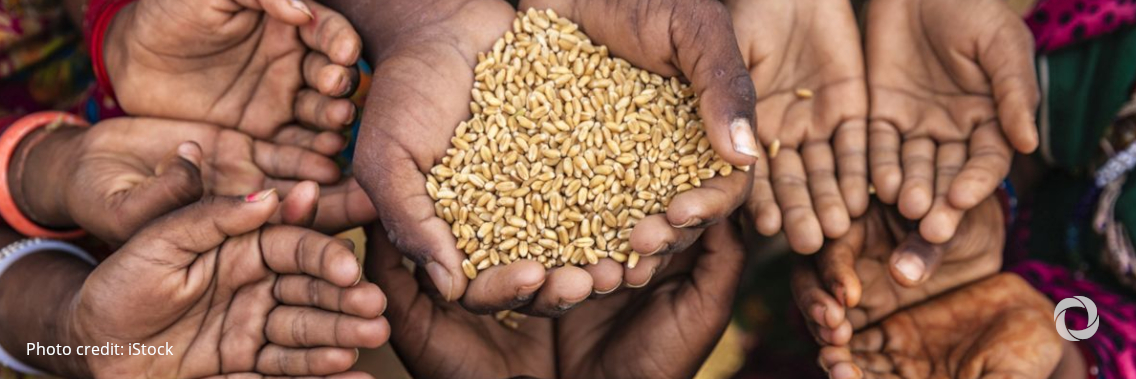The Director-General of the Food and Agriculture Organization of the United Nations, QU Dongyu, urged Foreign Affairs and Development Ministers of G20 countries to make more investments in rural areas and double down on actions to eradicate hunger and poverty.
Qu made the appeal at the Italy-presided G20 Foreign Affairs and Development Ministers’ meeting where – for the first time – food security and nutrition were at the center of the agenda.
“Governments must refocus their energies and investment to rural areas. The agricultural sector is the solution to eradicate poverty and undernourishment while reducing unwanted migration,” said Qu.
Eighty percent of the world’s poorest, or 600 million people – more than Europe’s entire population – live in rural areas, working in the agricultural sector, and yet go to bed hungry. Almost half of them are children under 15, with fewer opportunities for education and jobs than their peers in urban areas.
“Eradicating poverty and hunger doesn’t have to be prohibitively expensive,” said Qu.
He cited a recent modeling study by FAO and partners that found that if industrialized countries doubled their investment for 10 years and if poorer countries kept up with their investment to promote a series of low-cost interventions – such as in agricultural research and development, agricultural information, and communications services, improvement of literacy for women and girls – and scaled up existing social protection programs, this could help 500 million people escape from hunger. Moreover, an additional $39 billion to 50 billion per year is needed to end hunger by 2030, as envisaged by the second Sustainable Development Goal.
“Public, private, bilateral, multilateral and innovative forms of funding and partnerships are all needed to support the transformation of our economic and agri-food systems, particularly in low-income countries,” stressed Qu.
FAO welcomes the G20 Presidency’s decision to place food security and nutrition, COVID-19 response, and recovery at the center of the G20 meetings in Matera.
As the COVID-19 pandemic started, nearly one in ten people in the world were exposed to severe levels of food insecurity. The economic slowdown caused by the pandemic raises more concerns over global food security since the access to food by the poorest and most vulnerable is significantly affected by unemployment and income loss.
“I would like to commend the Government of Italy for its initiative with the Food Coalition, as a global alliance for coordination, our shared commitment in response to the pandemic. In this historical joint meeting, FAO would like to call upon the G20 and its partners to renew their collective commitment and joint actions to eradicating hunger and poverty,” concluded the FAO Director-General.
The Matera Declaration
The Foreign Affairs and Development Ministers’ meeting culminated in the Matera Declaration on food security, nutrition, and food systems. A call to action in the time of the COVID-19 pandemic and beyond – a declaration by the G20 Ministers, FAO, and other UN agencies and partners.
In it, the signatories “agree to deliver on food security priorities by enhancing efforts in ensuring safe and adequate nutrition for all, ending all forms of malnutrition, preserving agrobiodiversity, as well as relying on science, innovation, advanced business practices and responsible behavior complementing traditional knowledge, local food culture, and best practices in order to achieve SDG 2 targets”.
Renewed calls for partners to join the Food Coalition
“Partners and stakeholders to collaborate with or join the Food Coalition launched by FAO whose goal is to build a global alliance to trigger coordinated action in response to COVID-19, with a focus on the thematic priorities identified in this Matera Declaration around food security, nutrition, and food systems, and to mobilize political, financial, policy and technical support based on needs and demands of developing countries, with a focus on smallholder farmers, women, and youth,” The G20 Foreign Affairs and Development Ministers and FAO – through the Matera Declaration – encouraged
Proposed by the Government of Italy and led by FAO, the Food Coalition is a multi-stakeholder, multi-sectoral mechanism that aims to mobilize political, financial, and technical assistance in support of countries affected by the COVID-19 pandemic.
FAO is launching “Food Coalition – Call for proposals” encouraging all its Members to join efforts and submit proposals offering their support in response to needs on the ground.
A number of FAO Members and non-state actors with the technical support of FAO have already taken steps to build cross-country coalitions around priority topics such as: reducing food loss and waste; transforming agri-food systems; improving farmers’ access to markets and credits; adopting the One Health approach – all with the aim of responding to concrete needs and demands on the ground.
The Matera Declaration also called for the promotion of a science-based holistic One Health approach – which recognizes the strong links between humans, animals, and the environment and the need to tackle global health threats holistically.
In addition, the signatories of the Declaration committed to leveraging opportunities such as the 2021 UN Food Systems’ Summit – described as having the “potential to improve the sustainability of food systems” – and to explore existing initiatives, including the Global Network against Food Crisis (an international alliance of the UN, the EU, governmental and non-governmental agencies working to tackle food crises together, funded by EU, FAO and WFP in 2016) to reach the objectives of the Matera Declaration.

